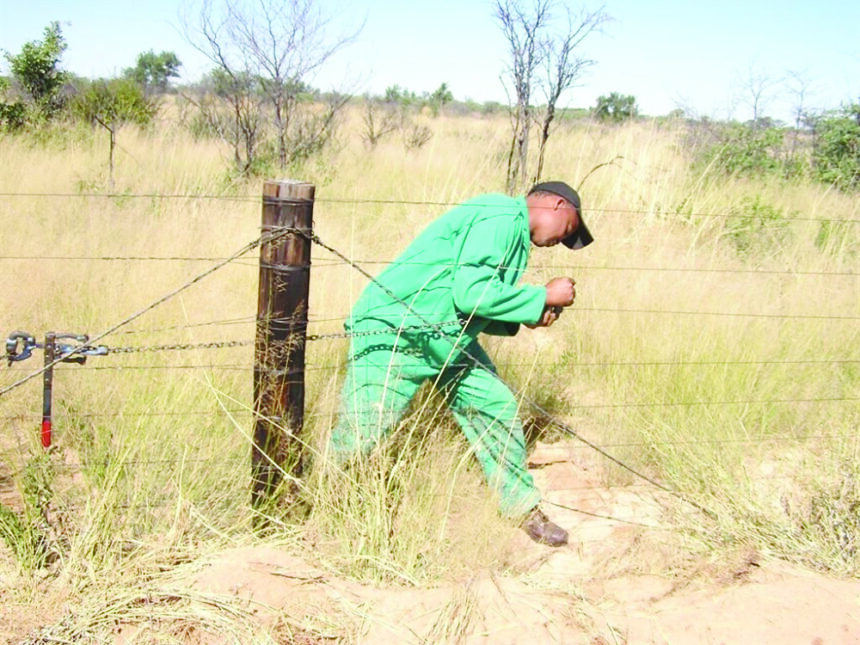The Cabinet has approved a phased approach to lifting restrictions imposed by the veterinary cordon fence as announced in its 16th decision-making meeting of 2024 yesterday.
The decision, announced by the Deputy Minister of Information and Communication Technology Modestus Amutse, aims to promote economic development and improve livestock health in affected regions.
Cabinet has proposed a feasibility study that will be conducted over the next two years to assess the potential impacts of removing the fence.
“The study will inform plans for creating disease-free zones within the identified areas, including Mangetti, Karikubis, Tsumkwe, Mangetti East Farms, Mangetti West and Onalusheshete Farms, Ombuga, Omutambo Maowe and Sesfontein,” read the Cabinet briefing note.
Saga
The announcement comes amid an ongoing legal challenge against the veterinary cordon fence, also known as the red line, by Affirmative Repositioning (AR) leader Job Amupanda.
He argued that the fence is discriminatory and unconstitutional, violating the dignity of the Namibian people, and hindering the movement of people and livestock.
The fence was originally established to prevent the spread of livestock diseases between northern Namibia and the rest of the country.
He asserted that it violates the dignity of the Namibian people, and serves as a colonial structure that hinders the movement of people and livestock from the north to the south.
Amupanda filed a lawsuit in May 2021, asking the court to declare the fence unlawful, and order its removal.
He also wants to prevent the government from confiscating red meat transported from the northern part of Namibia.
His legal challenge has been met with opposition from the government and various officials, including Minister of Agriculture, Water and Land Reform Calle Schlettwein.
He contends that the fence is crucial for maintaining Namibia’s status as a country free of foot-and-mouth disease, which is essential for accessing lucrative international markets for meat products.
However, this status limits market access for meat from northern communal areas.
Amupanda has faced difficulties with his legal efforts, including issues related to court costs and financial disclosures, which have led to postponements in the case.
Schlettwein made these statements in a witness statement filed at the court in November 2023.
He noted the importance of the veterinary cordon fence in preventing the spread of infectious animal diseases like foot-and-mouth disease in Namibia.
However, he acknowledged the negative impact on market access for meat products from the northern communal areas, stating that any changes to the red line would require a gradual approach rather than an immediate removal.
Schlettwein addressed the political connotations of the red line, acknowledging its historical significance as an Apartheid-era boundary.
However, he emphasised that the current government intends to improve livestock health and promote economic development in the affected regions.
Contacted for comment, Maitjituavi Kavetu, head of legal at AR, criticised the move as an electioneering gimmick.
“It’s rather a political move for elections.
How do you conduct a feasibility study for two years, and construct for five years? That’s a total of seven years before they can make any changes,” the lawyer said.


